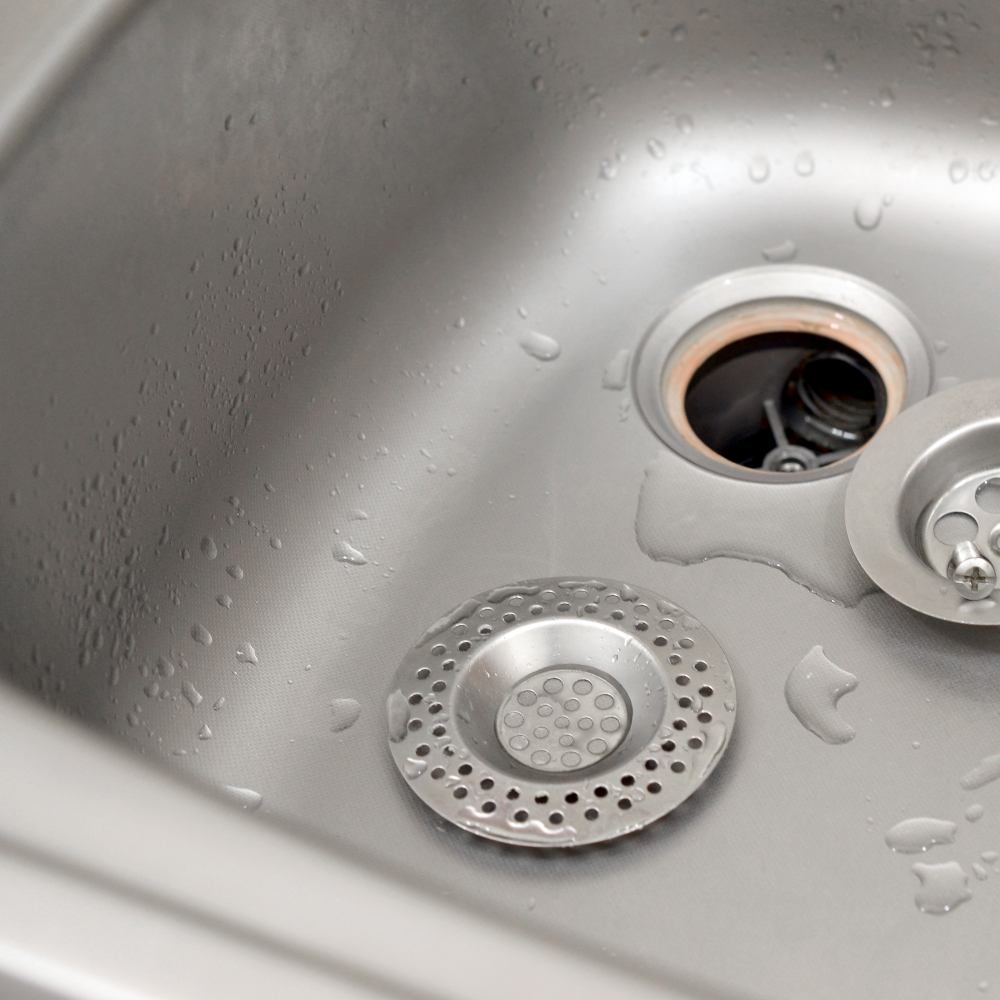
March 27/2024
4 Reasons Why Sink Drains Smell
One of the most unpleasant problems you can experience in your home is a smelly sink drain. Not only do smelly sink drains cause discomfort, but they also point to a plumbing problem lurking beneath the surface. In this article, Mr. Rooter Plumbing outlines four reasons why sink drains smell.
A P-trap is a curved pipe under the sink that has a U-shaped bend. It is responsible for trapping sewer gases so that they can't rise back up through the drain. The curved fitting traps a small amount of water that acts as a barrier against sewer gases. The water seal in a P-trap can dry out if a drain isn't used for a very extended period, allowing sewer gases to escape and cause foul smells. The trapped food debris in the P-trap will rot and release unpleasant odors. If your P-trap is dried out, you can clean it through the cleanout plug and restore it to good working condition. If you need help with cleaning the P-trap or suspect a more complex clog beyond the P-trap, it's always recommended to call a professional plumber.
This is possibly the most common cause of smelly sink drains. If you're fond of pouring leftover grease or cooking oil in your kitchen sink, it could be the main culprit behind smelly sink drains. When you pour grease down the drain, it cools and solidifies on the inside of the pipes. Over time, this grease buildup can accumulate and catch other debris, like food scraps and hair. The trapped organic matter will start to decompose and release foul odors. It's advisable to avoid pouring grease or cooking oil down your drains, otherwise, you'll always experience drain clogs. We also recommend you flush your drains with boiling water every two weeks. If you've encountered a clogged drain that cannot be cleared using a drain snake or plunger, reach out to a plumbing repair service for professional drain cleaning.
Sewer vent stacks are designed to eliminate sewer gases through the roof of your home. However, they can become clogged with all sorts of outdoor debris, resulting in sewer gases and odors emanating from your sink drain. When venting pipes are blocked, the sewer gases have nowhere to go but force their way out of your sink drains. It's important to do a periodic visual inspection around your roof and look for any signs of damage to the vent stack itself. Also, check for any blockages at the vent termination point on the roof. We also recommend having a professional plumber perform a comprehensive inspection every few years.
Another common cause of smelly sink drains is a clogged sewer line. Solid waste, foreign objects, tree roots, and grease buildup can interfere with the proper flow of wastewater, resulting in foul odors. A blockage in the sewer line traps wastewater, providing a breeding ground for bacteria. These bacteria feed on the organic matter in the wastewater, and as they decompose, they release unpleasant gases. Apart from foul odor wafting from your drains, other signs of sewer line clogs include gurgling sounds when you drain water and multiple slow-draining fixtures. You should call a professional plumbing repair service as soon as you notice signs of sewer line trouble. Ignoring signs of a clogged sewer line can cost you a lot of money down the line and even result in a plumbing disaster.
Contact Mr. Rooter Plumbing for Professional Drain Cleaning Services
A smelly sink drain points to a plumbing problem that needs to be addressed as quickly as possible. If you've tried DIY techniques to resolve the problem with no success, it may be time to call a qualified plumber that specializes in clogged drain line repair. Here at Mr. Rooter Plumbing, we pride ourselves on providing quality drain cleaning services. When you're in need of professional drain cleaning, look no further than Mr. Rooter Plumbing.




